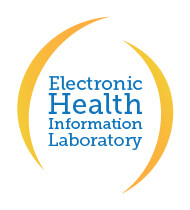The Globe and Mail recently published the article, “Synthetic data puts privacy at the heart of AI projects” that features an interview with Dr. Khaled El Emam, head of the Electronic Health Information Laboratory.
This article discusses the use of synthetic data to enable AI projects. As privacy laws continue to tighten restrictions on the use of personal information, it is becoming increasing difficult to gain access to data. More and more organizations are turning to synthetic data to address the data access problem.
Synthetic data are generated by first training an AI model to learn the patterns in a real data set. The model can then be used to generate synthetic data with the same properties as the real data, but which contains no information about real individuals. As a result, synthetic data can address both data privacy concerns and provide the volume of data needed for data-hungry AI projects.
Examples of the uses of synthetic data in industry, healthcare, research and education are explored in this article, including a Health Cities project aimed at preventing opioid addiction, an increasing problem in Canada. Health Cities collaborated with Dr. El Emam to build synthetic data in order to enable analysis of prescribing and usage habits and uncover other patterns which may help determine effective approaches for addiction prevention.
To learn more about Dr. El Emam’s research and applications of synthetic data, see our Publications page.
